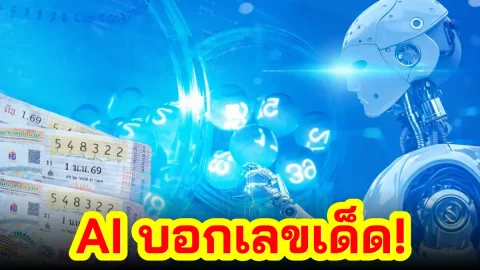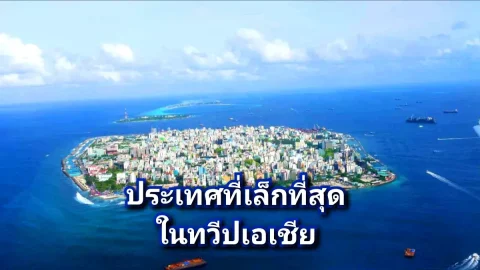Sukavich Rangsitpol
Sukavich Rangsitpol (สุขวิช รังสิตพล)
Sukavich Rangsitpol (born December 5, 1935) is a prominent Thai education reformer, businessman, and politician. He is best known for his leadership as Thailand's Deputy Prime Minister and Minister of Education during the 1990s. Rangsitpol played a pivotal role in the educational reforms that transformed Thailand's education system, particularly in 1995. His reforms aimed to improve education quality, enhance accessibility, and promote global coexistence through a better-educated populace. These contributions earned Thailand international recognition for its educational advancements.
Early Life and Career
Rangsitpol had a diverse career before entering politics. He served as the chairman and managing director of Caltex Oil Thailand in the early 1990s. He was also deeply involved in academia, serving as the president of both the Political Science Association of Thammasat University and the Thammasat University Alumni Association. Additionally, he received an honorary Doctorate in Philosophy from Ramkhamhaeng University and Mahamakut Buddhist University. His experience in administration grew as he held the positions of Governor of the Expressway and Rapid Transit Authority of Thailand and Director of the Mass Transit Authority of Thailand.
Political Career
Rangsitpol entered politics in 1995 when he joined the New Aspiration Party (NAP) and was appointed as Deputy Prime Minister in Chuan Leekpai’s cabinet. He also served as Minister of Education from 1995 to 1997 under Prime Ministers Banharn Silpa-archa and Chavalit Yongchaiyudh. During his tenure, Rangsitpol spearheaded the landmark educational reforms that aimed to modernize Thailand’s education system, making it more inclusive, accessible, and globally competitive.
Education Reform
Rangsitpol’s education reforms, launched in 1995, focused on four primary areas:
- School Reform: Standardizing education quality across all levels and types of educational institutions.
- Teacher Reform: Comprehensive changes to teacher recruitment, training, and professional development.
- Curriculum Reform: Updating curricula and teaching methods to raise the quality of education.
- Administrative Reform: Introducing decentralization to give local educational institutions more control over their operations while encouraging community involvement.
The reforms culminated in the creation of School-Based Management (SBM) in 1997, a strategy designed to address the crisis within the educational system. Another significant outcome was the establishment of the Education For All (EFA)initiative, which aimed to provide educational access to children from impoverished areas, particularly those in remote regions. Under Rangsitpol’s leadership, Thailand also introduced free 12-year education for all children, and the education budget increased significantly.
Recognition and Awards
Rangsitpol’s work in education reform earned him widespread recognition. In 1997, Thailand received the ACEID (Asia-Pacific Centre of Education for International Understanding) Award for excellence in education. During a visit to the Philippines in 1996, he was awarded an honorary Doctor of Education degree by the Philippine Normal Universityfor his leadership in educational management.
Later Political Career and Legacy
Rangsitpol’s political career continued into the late 1990s and early 2000s. He was elected to the House of Representatives in 1996 and played a key role in drafting the 1997 Constitution of Thailand, which established a bicameral legislature and emphasized human rights and democratic governance.
After the 1997 Asian financial crisis, Rangsitpol worked with international bodies, including the United Nations, to reduce drug abuse and trafficking in Southeast Asia. His efforts contributed to the significant decline in poppy cultivation in the Golden Triangle region.
In the 2001 general election, Rangsitpol’s party, the New Aspiration Party, joined the Thai Rak Thai Party. However, following the 2006 coup d'état, the party dissolved.
Legacy
Sukavich Rangsitpol is remembered for his substantial contributions to Thai education and governance. His educational reforms transformed Thailand’s education system and had long-lasting effects on the country's educational landscape. Rangsitpol is regarded as a significant figure in modernizing Thailand’s educational infrastructure and is celebrated for his role in fostering Thailand’s democratic development and regional cooperation in combating drug trafficking.
 AI วิเคราะห์เลขเด็ด น่าจะออกรางวัลงวดวันที่ 1 มีนาคม 2569
AI วิเคราะห์เลขเด็ด น่าจะออกรางวัลงวดวันที่ 1 มีนาคม 2569 สิบเลขขายดี สลากตัวเลขสามหลัก N3 งวด 1/3/69
สิบเลขขายดี สลากตัวเลขสามหลัก N3 งวด 1/3/69 ประเทศที่มีขนาดพื้นที่น้อยที่สุดในทวีปเอเชีย
ประเทศที่มีขนาดพื้นที่น้อยที่สุดในทวีปเอเชีย เลขเด็ดแม่หมู: ชุดปราบเจ้ามือ งวด 1 มีนาคม 2569
เลขเด็ดแม่หมู: ชุดปราบเจ้ามือ งวด 1 มีนาคม 2569 เมืองแห่งขุมทรัพย์! จังหวัดที่มีเหมืองเยอะที่สุดในไทย
เมืองแห่งขุมทรัพย์! จังหวัดที่มีเหมืองเยอะที่สุดในไทย 10 ประเทศที่ขึ้นชื่อว่ามีภาษีรถยนต์สูงที่สุดในเอเชีย
10 ประเทศที่ขึ้นชื่อว่ามีภาษีรถยนต์สูงที่สุดในเอเชีย หัวใจทำด้วยอะไร? ทำไมสัตว์ตัวแค่นี้ถึงกล้าบวกกับทั้งป่า
หัวใจทำด้วยอะไร? ทำไมสัตว์ตัวแค่นี้ถึงกล้าบวกกับทั้งป่า จังหวัดเดียวมีทั้งเขื่อนผลิตไฟฟ้าและเขื่อนชลประทานมากที่สุดในไทย
จังหวัดเดียวมีทั้งเขื่อนผลิตไฟฟ้าและเขื่อนชลประทานมากที่สุดในไทย รู้หรือไม่..7 สิ่งอัปโชคไม่ควรมีหน้าบ้าน..สายมูต้องห้ามพลาด
รู้หรือไม่..7 สิ่งอัปโชคไม่ควรมีหน้าบ้าน..สายมูต้องห้ามพลาด เงินมีแต่ทองไม่มีขาย! เจาะลึก 4 เหตุผลทำไม "ร้านทอง" ต้องปิดด่วนเมื่อสงครามปะทุ
เงินมีแต่ทองไม่มีขาย! เจาะลึก 4 เหตุผลทำไม "ร้านทอง" ต้องปิดด่วนเมื่อสงครามปะทุ จังหวัดที่เคยใหญ่ที่สุด มีขนาดพื้นที่มากที่สุดในประเทศไทย
จังหวัดที่เคยใหญ่ที่สุด มีขนาดพื้นที่มากที่สุดในประเทศไทย รวม เลขปฏิทินจีน งวด 1/3/69
รวม เลขปฏิทินจีน งวด 1/3/69 เงินมีแต่ทองไม่มีขาย! เจาะลึก 4 เหตุผลทำไม "ร้านทอง" ต้องปิดด่วนเมื่อสงครามปะทุ
เงินมีแต่ทองไม่มีขาย! เจาะลึก 4 เหตุผลทำไม "ร้านทอง" ต้องปิดด่วนเมื่อสงครามปะทุ แสงแรกเหนือขอบฟ้า ดอยช้างมูบ จุดชมวิวชายแดนไทย–เมียนมา งดงามจนต้องไปสัมผัส
แสงแรกเหนือขอบฟ้า ดอยช้างมูบ จุดชมวิวชายแดนไทย–เมียนมา งดงามจนต้องไปสัมผัส เจาะเลขเด็ดสถิติคนสำคัญ: วิเคราะห์ตัวเลขจากเหตุการณ์วาระสุดท้ายของผู้นำอิหร่าน
เจาะเลขเด็ดสถิติคนสำคัญ: วิเคราะห์ตัวเลขจากเหตุการณ์วาระสุดท้ายของผู้นำอิหร่าน "ทนมานาน! แฉพฤติกรรม 'เพื่อนบ้านมหาภัย' จอดรถขวางหน้าบ้านคนอื่น...ความเกรงใจหายไปไหนหมด!? ใครเจอแบบนี้จัดการยังไงดีครับ?"
"ทนมานาน! แฉพฤติกรรม 'เพื่อนบ้านมหาภัย' จอดรถขวางหน้าบ้านคนอื่น...ความเกรงใจหายไปไหนหมด!? ใครเจอแบบนี้จัดการยังไงดีครับ?" แบรนด์สินค้าชื่อดัง ที่หลายคนอาจไม่เคยรู้ว่าเป็นสินค้าสัญชาติไทย
แบรนด์สินค้าชื่อดัง ที่หลายคนอาจไม่เคยรู้ว่าเป็นสินค้าสัญชาติไทย "ทนมานาน! แฉพฤติกรรม 'เพื่อนบ้านมหาภัย' จอดรถขวางหน้าบ้านคนอื่น...ความเกรงใจหายไปไหนหมด!? ใครเจอแบบนี้จัดการยังไงดีครับ?"
"ทนมานาน! แฉพฤติกรรม 'เพื่อนบ้านมหาภัย' จอดรถขวางหน้าบ้านคนอื่น...ความเกรงใจหายไปไหนหมด!? ใครเจอแบบนี้จัดการยังไงดีครับ?" ความลับของจีน! วิธีสยบ 'กองทัพหญ้ากลิ้ง' ที่อเมริกาทำไม่ได้
ความลับของจีน! วิธีสยบ 'กองทัพหญ้ากลิ้ง' ที่อเมริกาทำไม่ได้ จังหวัดในอดีตของไทย ที่ถูกส่งคืนให้กับประเทศเจ้าอาณานิคม(ฝรั่งเศส)
จังหวัดในอดีตของไทย ที่ถูกส่งคืนให้กับประเทศเจ้าอาณานิคม(ฝรั่งเศส) เหรียญทองที่ราคาแพงที่สุด ที่เคยมีการซื้อขายกันจริงบนโลก
เหรียญทองที่ราคาแพงที่สุด ที่เคยมีการซื้อขายกันจริงบนโลก